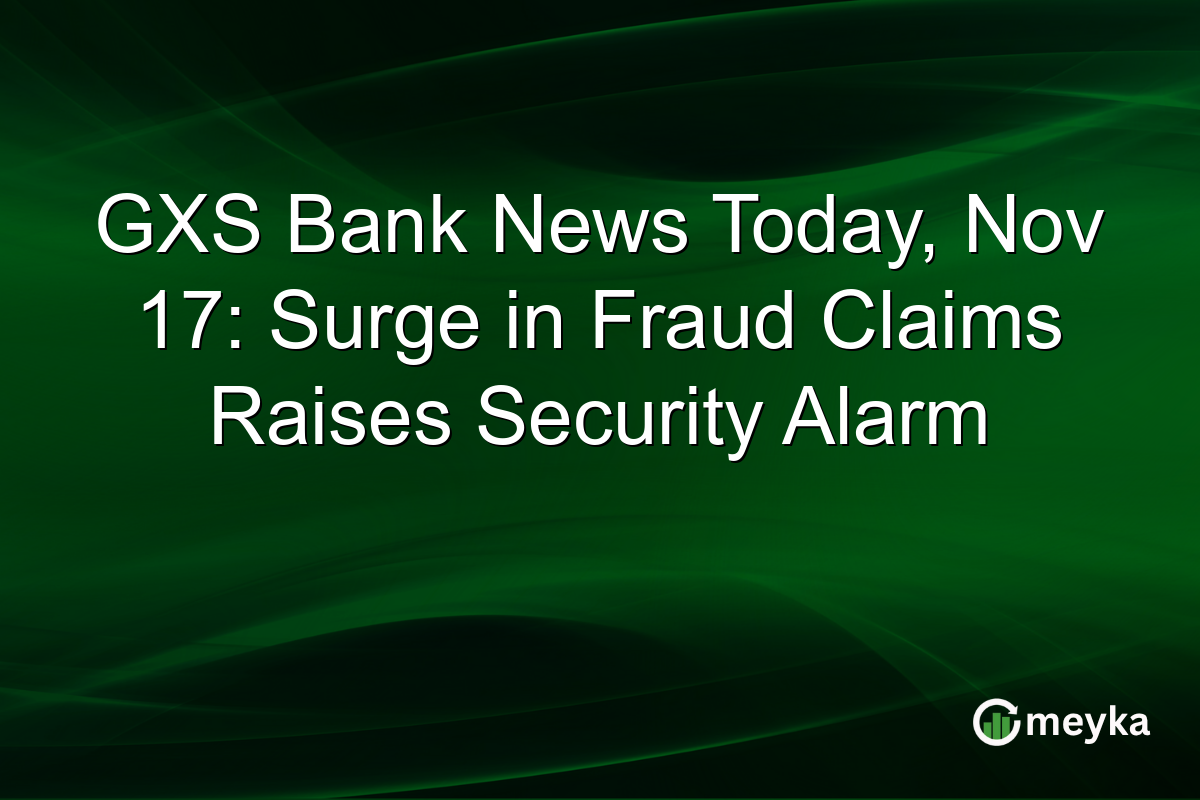GXS Bank News Today, Nov 17: Surge in Fraud Claims Raises Security Alarm
A recent upswing in fraud claims against digital banks, including GXS Bank, has put the spotlight on digital banking security in Singapore. As of November 2025, there has been a notable rise in the sophistication of phishing scams and hacking attempts. This trend highlights the vulnerabilities plaguing the sector and demands a reevaluation of current cybersecurity measures. With digital finance increasingly becoming the norm, ensuring secure online banking experiences is more critical than ever.
Current Trends in Digital Banking Fraud
Fraud claims across digital banks in Singapore, notably GXS Bank, have recently risen sharply. Reports indicate a 25% increase in cases compared to the previous year. Cybercriminals are evolving, using more sophisticated phishing tactics and exploiting security gaps. This surge poses significant concerns for users and stakeholders.
Furthermore, digital banks handling substantial data and transactions face mounting pressure to fortify defenses. Addressing these threats is crucial to maintaining trust and ensuring customer retention. Read more about this trend on Singapore Law Watch.
Impact on Digital Banking Security
The rise in GXS Bank fraud claims underscores significant vulnerabilities within digital banking systems. Cybersecurity experts stress the need for robust protocols, including two-factor authentication and real-time transaction monitoring. This will protect institutions and their customers against potential financial losses.
Digital banking security measures must adapt to counter new scam trends. Investments in advanced AI and machine learning offer promising defenses against evolving threats. Failure to enhance protection could result in more substantial fraud losses and damage brand credibility.
Legal and Regulatory Responses
In response to increasing GXS Bank fraud claims, Singapore’s regulatory bodies are tightening guidelines. The Monetary Authority of Singapore (MAS) has issued directives to enhance security frameworks among digital banks. This move aims to protect consumers and bolster trust in digital financial systems.
Further, legislative frameworks are being reviewed to equip regulators with better tools to catch and prosecute online scammers. This proactive approach signals the commitment to ensuring safe and secure digital transactions, reassuring investors and users alike.
Final Thoughts
The surge in fraud claims against GXS Bank and other digital banks in Singapore brings the crucial need for improved digital banking security into sharp focus. As cybercriminals grow bolder and more innovative, digital banks must revamp their security strategies. Enhanced technologies such as AI-driven fraud detection and stringent regulatory oversight are essential. By taking these steps, banks can protect their clients and preserve integrity. Moving forward, robust security measures will be key to sustaining the digital finance industry’s growth and user trust.
FAQs
Digital banks can enhance security by implementing multi-factor authentication, using AI for fraud detection, and regularly updating their cybersecurity protocols. Educating customers about phishing threats and securing data through encryption can also help mitigate risks.
An increase in fraud claims impacts digital banks by damaging customer trust and incurring financial losses. It also necessitates heightened regulatory scrutiny and forces banks to invest more heavily in security measures to protect their clientele.
Current scam trends include sophisticated phishing attacks, social engineering tactics, and ransomware. Cybercriminals exploit these methods to access sensitive information and financial assets, posing significant threats to digital banks.
Disclaimer:
The content shared by Meyka AI PTY LTD is solely for research and informational purposes. Meyka is not a financial advisory service, and the information provided should not be considered investment or trading advice.






